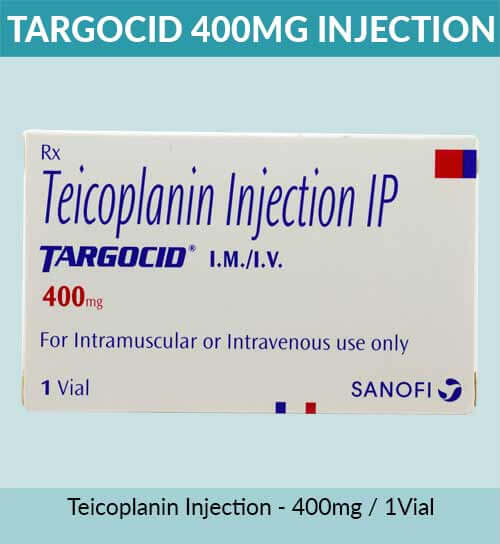Teicoplanin
Teicoplanin is a potent antibiotic medication that is used in the treatment of bacterial infections. It belongs to the glycopeptide class of antibiotics and exhibits broad-spectrum activity against various Gram-positive bacteria, including methicillin-resistant Staphylococcus aureus (MRSA) and vancomycin-resistant enterococci (VRE).
The primary mechanism of action of teicoplanin involves inhibiting the synthesis of bacterial cell walls. It specifically targets the peptidoglycan layer, which is crucial for the structural integrity of bacterial cells. By binding to specific receptors on the bacterial cell wall, teicoplanin prevents the formation of cross-links between peptidoglycan strands, ultimately weakening the cell wall and leading to bacterial death.
Teicoplanin is commonly used in the treatment of severe infections caused by Gram-positive bacteria, such as skin and soft tissue infections, bone and joint infections, respiratory tract infections, and bloodstream infections. It is particularly effective against resistant strains of bacteria, making it a valuable option in cases where other antibiotics may be less effective.
The medication is typically administered intravenously or intramuscularly, allowing for effective distribution throughout the body. The dosage and duration of treatment vary depending on the specific infection being treated, the severity of the infection, and the patient’s individual characteristics.
As with any medication, teicoplanin can have potential side effects. Common side effects may include gastrointestinal disturbances such as nausea, vomiting, and diarrhea. Rare but more severe side effects may include allergic reactions, kidney toxicity, and changes in blood cell counts. It is important for healthcare providers to monitor patients closely during treatment to ensure the medication is well-tolerated and to promptly address any adverse effects.
Due to its mechanism of action and potency, teicoplanin is considered a crucial antibiotic in the management of serious bacterial infections, especially those caused by drug-resistant strains. It is an important tool in combating antibiotic-resistant bacteria and preserving the effectiveness of antibiotics in the long term.
In summary, teicoplanin is a powerful antibiotic used to treat various bacterial infections, particularly those caused by Gram-positive bacteria. Its ability to target drug-resistant strains makes it an important therapeutic option. However, like all antibiotics, teicoplanin should be used judiciously and under the guidance of healthcare professionals to maximize its benefits while minimizing the risk of side effects and the development of antibiotic resistance.

